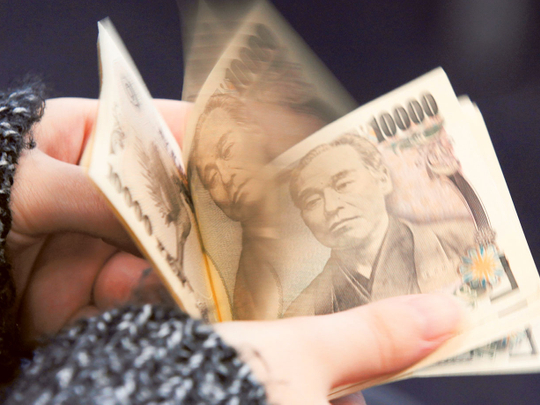
Tokyo: The yen soared against the dollar as Japanese authorities intervened again to prop up the currency.
The dollar-yen pair fell as much as 2.6 per cent, the biggest drop since March 2020, to 146.23. The Japanese currency had earlier reached a fresh 32-year low of 151.95 despite a barrage of official warnings against testing its intervention strategy. Nikkei reported Japan intervened in the currency market to support the yen.
Authorities have repeatedly said they will step in to counter one-sided moves, although some analysts warn that any intervention will have limited impact as long as the Bank of Japan maintains a policy of rock-bottom interest rates while peer central banks hike.
“All the market talk is about intervention,” even though there’s no official confirmation, said Alan Ruskin, chief international strategist at Deutsche Bank AG. “Intervention is only a short-term palliative in current circumstances.”
In September, the government intervened to support the currency for the first time since 1998 after it weakened to 145.90 per dollar. The Ministry of Finance spent almost $20 billion in September to limit the currency’s losses.
Finance Minister Shunichi Suzuki, speaking to reporters this week, reiterated the country will take appropriate action against speculative moves. Bank of Japan Governor Haruhiko Kuroda has made clear he has no intention to change the rock-bottom interest-rate policy that is contributing to the yen’s slide.
The yen has slumped to a 32-year low this year as traders focused on the widening yield gap between the US and Japan, with the former hiking rates aggressively and the latter keeping them low to boost a sluggish economy. That encourages investors to seek out the more attractive returns in dollar assets compared to Japanese ones.
There’s no official confirmation of intervention, but it “smells like it for sure,” said Alex Etra, a senior strategist at Exante Data Inc. Intervention won’t stop the yen from weakening further because “they are rowing upstream against fundamentals: high energy prices and rate differentials,” he said.












